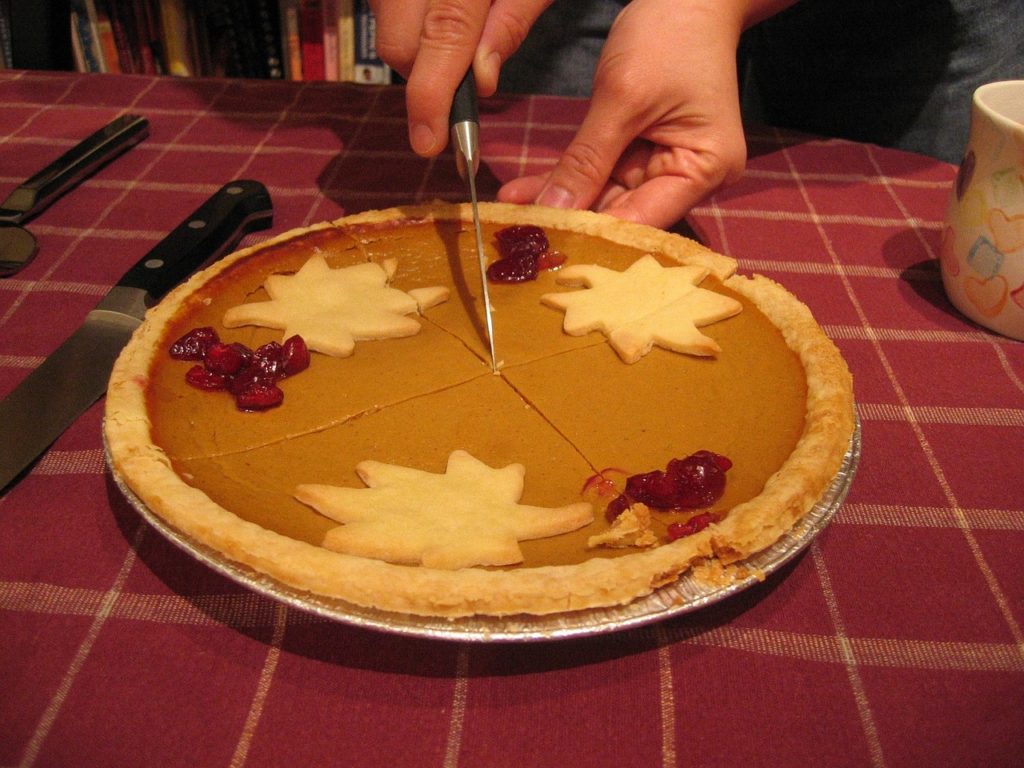- Calls to this hotline are currently being directed to Within Health, Fay or Eating Disorder Solutions
- Representatives are standing by 24/7 to help answer your questions
- All calls are confidential and HIPAA compliant
- There is no obligation or cost to call
- Eating Disorder Hope does not receive any commissions or fees dependent upon which provider you select
- Additional treatment providers are located on our directory or samhsa.gov
Count Your Blessings, Instead of Your Calories

Contributor: Amy M. Klimek, MA, LCPC, Director of Program Development, Eating Disorder Program Coordinator, Timberline Knolls Residential Treatment Center
As we begin to count down the days to the holiday season, creating the menu for the Thanksgiving meal or starting early on holiday shopping, those struggling with an eating disorder will need to prepare differently.
Eating disorders and holiday celebrations may not always go hand in hand. Usually the person struggling with the disorder is counting the excuses to avoid the holiday meal or fearing the amount of leftovers that will trigger a late-night binge.
Creating a Sense of Balance in Recovery
The holiday season is a magical time filled with family and friends, near and far. It’s a time of year that we share gratitude and laugher with those around us. While at the same time, those struggling with food, or their body are overwhelmed by fear and anxiety of thoughts and judgments and questions if their recovery will survive it.
Hope and tranquility is possible. Finding balance in the rhythm of the holiday rush often means preparing for the holidays outside of menu planning and shopping list. Instead, preparation comes in the form of introspection and internal dialogue.
Trusting Yourself, Finding Gratitude
Trust your meal plan. Holidays often look like fasting to feasting. With the support of your meal plan, you will not arrive to a holiday celebration famished or full. All foods fit into your meal plan including the holiday favorites. Speaking with your Dietitian before the meal to navigate the holiday meal planning will help decrease the anxiety and fears around your plate.
F ind gratitude in your experience around the table. Notice the hum of conversation around you. Be present to who is sitting next to you at the dinner table.
ind gratitude in your experience around the table. Notice the hum of conversation around you. Be present to who is sitting next to you at the dinner table.
Trust your communication. Ask for support and know your boundaries. You may not be able to attend all the holiday galas. You do not have to answer all the questions an inquisitive relative may ask. You are allowed to change the subject. When you RSVP, consider who will be there to help offer verbal and emotional support. Ask yourself “what will I need to remain present in this experience?” Allow yourself to say “no” when it is necessary and allow yourself to say, “yes” to new experiences.
Trust your commitment to your recovery. Stay mindful to what your limitations may be, while not allowing your limitation to decide your journey. This is a journey of self-preservation and exploration. Your choices are your own. You know what you need to do to stay abstinent from behaviors. Be confident in your coping skills. Trust yourself to use them. Before each party or each meal remind yourself of your commitment to you, and your recovery. Honor it.
Consider the holidays as another milestone in your journey. The ones you love and cherish the most surround you. Your recovery brought you back to the table to share a meal, laughter and love with one another. Count your blessings, not your calories. Show up to this holiday season with your strength and resilience. You have worked for it.
Community Discussion – Share your thoughts here!
What are ways that you have established balance in your recovery during the holiday season?
 About the Author: As the Eating Disorder Program Coordinator, Amy facilitates supervision for Eating Disorder Specialists, offers support through training to TK staff, and provides education on eating disorders to the community.
About the Author: As the Eating Disorder Program Coordinator, Amy facilitates supervision for Eating Disorder Specialists, offers support through training to TK staff, and provides education on eating disorders to the community.
Amy started at Timberline Knolls as a Behavioral Health Specialist. As such, she provided support at the milieu level for all residents. She transitioned to Eating Disorder Specialist in 2012, supporting healing in present moment experiences for residents who struggled with eating disorders and body image. Amy earned a Bachelor of Science Degree in Sociology from the University of Illinois. She was awarded a Master’s Degree in Counseling specializing in both community and school counseling from Lewis University.
The opinions and views of our guest contributors are shared to provide a broad perspective of eating disorders. These are not necessarily the views of Eating Disorder Hope, but an effort to offer discussion of various issues by different concerned individuals.
We at Eating Disorder Hope understand that eating disorders result from a combination of environmental and genetic factors. If you or a loved one are suffering from an eating disorder, please know that there is hope for you, and seek immediate professional help.
Last Updated & Reviewed By: Jacquelyn Ekern, MS, LPC on October 11, 2016
Published on EatingDisorderHope.com

The EatingDisorderHope.com editorial team comprises experienced writers, editors, and medical reviewers specializing in eating disorders, treatment, and mental and behavioral health.

